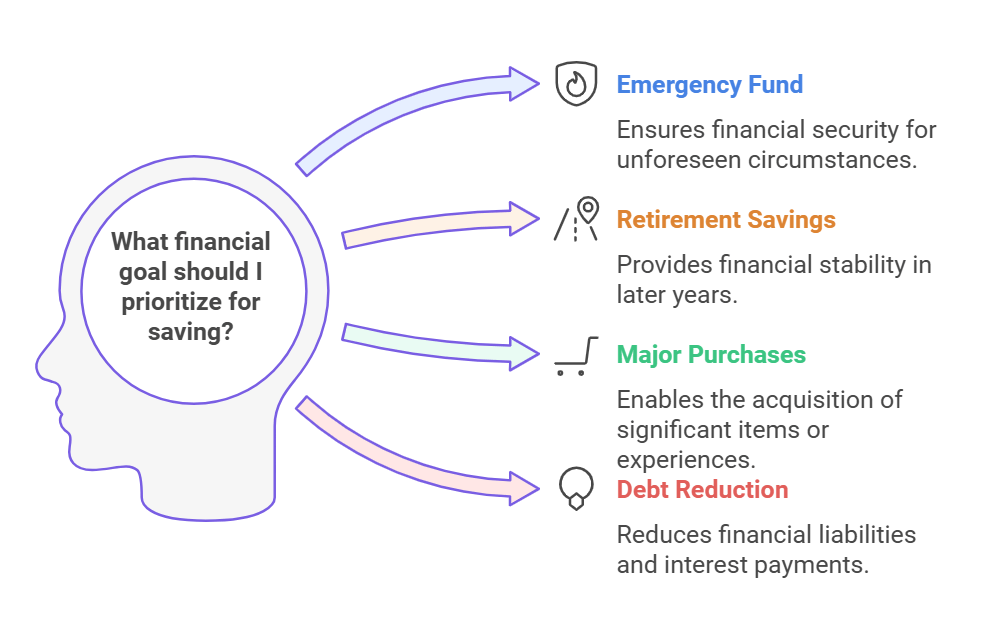Saving 101
Before we dive into saving, we need to understand why it matters and how to do it right. Saving money isn’t just about cutting costs. It’s about building a foundation for financial security and future possibilities.
Setting Your Goals

The first step in any saving journey is to set clear goals. According to the Consumer Financial Protection Bureau, people with specific financial goals save 20% more than those without.
Consider these categories for your goals:
- Emergency fund (3-6 months of expenses)
- Retirement savings
- Major purchases
- Debt reduction
- Personal goals (travel, education, etc.)
Advertisement
How to Save Money
1. Create a Budget
Budgeting starts with saving. According to the National Foundation for Credit Counseling, 79% of people who budget feel more in control of their money.
50/30/20
- 50% for needs
- 30% for wants
- 20% for savings and debt repayment.
2. Bank Like a Pro
- Open a high-yield savings account (up to 5.25% APY).
- Use automatic transfers to save money.
- Minimize or eliminate bank fees.
3. Reduce Monthly Fixed Expenses
Housing
- If rates are good, refinance your mortgage.
- Negotiate your rent during lease renewal.
- House hack
Utilities
- Energy audit
- Smart thermostats
- Energy-efficient appliances
Insurance
- Bundle policies for discounts.
- Review annually.
- If possible, increase deductibles.
4. Shop Smart
Daily purchases
- Cashback credit cards
- Store loyalty programs
- 24-hour rule for discretionary spending
Major Purchases
- Research seasonal sales cycles.
- Negotiate prices on big-ticket items.
- CPO
Advertisement
Advanced Saving Techniques
1. Tax Planning
- Contribute to retirement accounts.
- Harvest losses in investment accounts.
- HSA
2. Debt
- Debt avalanche
- Debt consolidation
- Negotiate with creditors
3. Income
- Multiple income streams
- Request raises.
- Monetize your skills through side hustles.
Technology and Tools
Must-Have Apps and Services
- Budgeting apps (Mint, YNAB)
- Price comparison tools
- Automated saving apps
Building Wealth
1. Investment
- Max out 401(k) match
- Low-cost index funds
- Diversify portfolio
2. Education
- Stay updated on personal finance.
- Learn basic investing.
- Understand taxes
Advertisement
Don’t Do
- Lifestyle inflation
- Emotional spending
- Neglect emergency fund
- Overuse credit
Track and Adjust
Measure
- Savings rate
- Net worth
- Debt
- Returns
Conclusion
To save money successfully requires a combination of strategic planning, consistent execution, and regular evaluation of your methods. By implementing these strategies and maintaining focus on your financial goals, you can build a secure financial future while still enjoying life in the present.
External Resource Citations:
- Federal Reserve Economic Data (FRED) – [https://fred.stlouisfed.org/] Consumer
- Financial Protection Bureau – [https://www.consumerfinance.gov/]
- National Foundation for Credit Counseling – [https://www.nfcc.org/]

